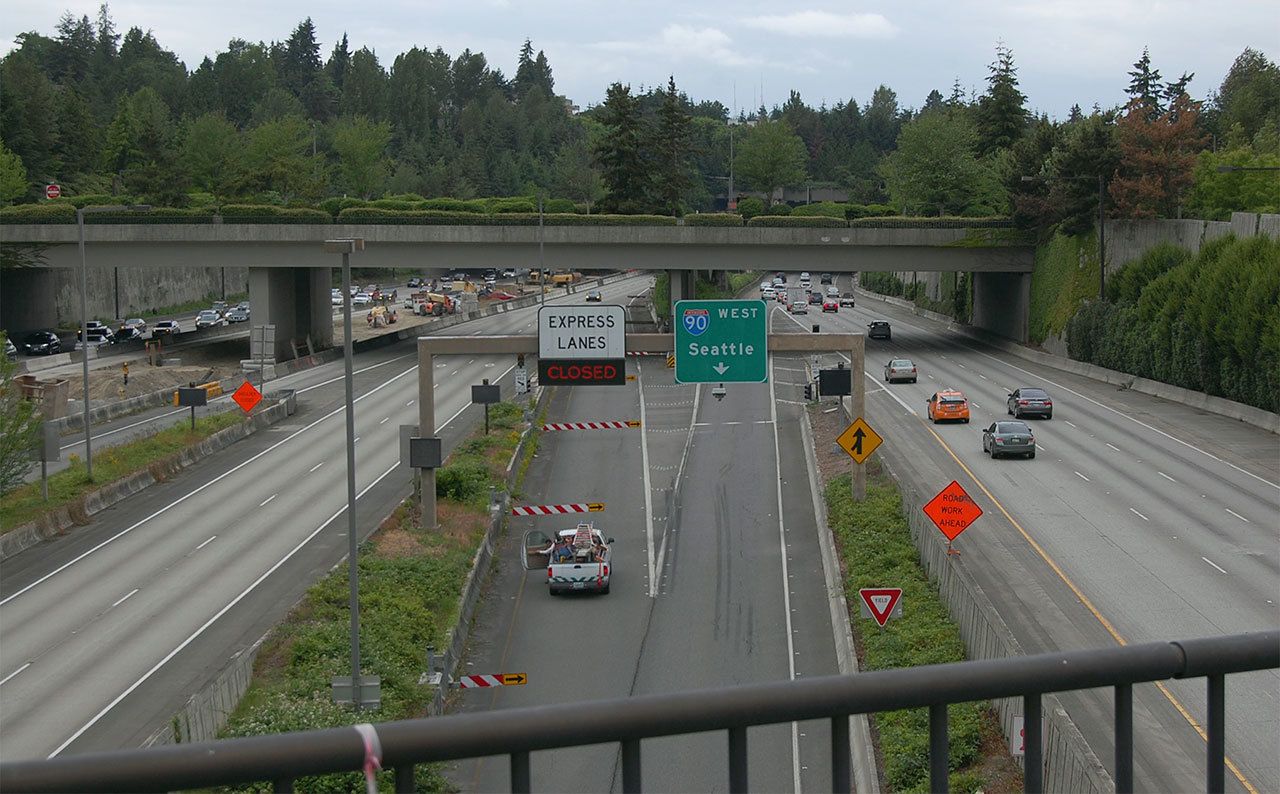As the closure of the Interstate 90 center roadway express lanes looms closer, anxiety is building in the Mercer Island community over the mobility challenges during and after light rail construction. A change.org petition encouraging “citizens of Mercer Island and the City Council must stand together to fight for our community before irreversible, ruinous changes are enacted” had 1,959 supporters on Jan. 17.
Mercer Island is currently attempting to negotiate a viable plan with Sound Transit, the Washington State Department of Transportation (WSDOT) and the Federal Highway Administration (FHWA) to mitigate the impact of light rail and ensure suitable mobility once the center lanes are permanently closed in mid-2017.
The petition, started by “Citizens for I-90 Mobility,” reiterates points made by the Mercer Island School District, Vision Mercer Island and Save Our Suburbs (SOS): that the Mercer Island City Council must negotiate with more force for the mobility that historic agreements guaranteed.
“We want the parties to uphold the terms of the 1976 agreement for the region,” said Jim Lovsted, one of the petition organizers. “The stated requirements of that agreement provide the foundation for these negotiations. New studies must be completed and provisions of the agreement must be met.”
The organizers have “concerns about the [council’s] current direction and plans,” Lovsted said.
“We recognize Mercer Island is in the midst of negotiations that will dramatically and permanently change our mobility (car/bus/bike/pedestrian), safety, schools, parking and ultimately quality of life for generations of Islanders,” the petition reads. “We would wholly embrace WSDOT and Sound Transit’s regional approach if it were not so clearly detrimental to Mercer Island.”
The petition gives suggestions to the council, including revoking the shoreline permit that the city had previously issued to Sound Transit, and opening two additional direct access ramps for all traffic prior to closing the center roadway, to mitigate traffic backup on I-90 and bus access from 2017-2023, to name a few.
Other residents have asked that a new Environmental Impact Statement (EIS) be done to address the changes to the I-90 configuration brought forth by FHWA — namely, that people driving alone to and from Mercer Island will no longer be able to use the HOV lanes.
“In the absence of a comprehensive plan that addresses the serious issues regarding safety or mobility, regional leaders are obligated to stop the construction process and ensure there aren’t permanent adverse consequences to the region,” said SOS founder Tom Acker.
Acker called the petition a “grassroots effort” and said that education and information sharing are critical to the region at this point. Citizens that addressed the council during its Jan. 3 meeting said that they have been frustrated by the secretive, “sub rosa” negotiating process, and that they want to help the council achieve a good outcome.
Subeer Manhas, one of the petition organizers, told the council that he believes the next few months represent a “once-in-a-lifetime chance for a win-win agreement.” He said that the city should motivate the other agencies involved to cooperate by revoking the shoreline permit, and then present a unified term sheet that residents have agreed upon.
The council is negotiating from a list of six priorities the community identified in the fall of 2015: securing access to new “R8A lanes” on outer roadways; mitigating traffic impacts in and around Town Center; increasing commuter parking for Mercer Island residents; improving “last mile” connections to light rail via new options; minimizing the impact of regional bus operations (cap at current levels); and requiring safe, convenient pedestrian and bicycle access to light rail.
The petition’s language is more forceful, demanding “no bus intercept or turnaround on Mercer Island,” that the I-90 center roadway is kept open until it is absolutely necessary to close for construction” and “specific mitigations to prevent irreversible and irrevocable damage to our community, including compensation.”
The city is keeping a tight lid on the negotiations because “many of these complex, interconnected issues have long histories, and their successful resolution will depend on the support of multiple parties.” It has shared some relevant information with the public, including a Town Center traffic study and a list of I-90 access alternatives being considered by all of the agencies. See the city’s webpage here for more.
Read the petition at www.change.org/p/mi-city-council-maintain-mobility-and-transit-options-for-i-90-commuters?recruiter=467906738&utm_source=share_for_starters&utm_medium=copyLink.
Correction: A previous version of the story stated that the shoreline permit had been issued to the city by Sound Transit.


